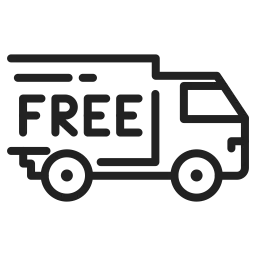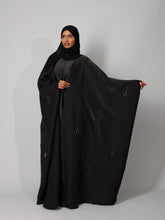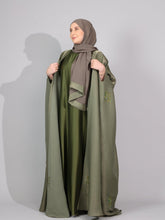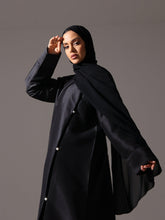The daily hijab struggle is real: Should you wear an undercap or go without one?
Many hijabis face this decision every morning. It affects your comfort, how your hijab sits throughout the day, and how confident you feel.
In this guide, you’ll learn the real pros and cons of wearing an undercap versus not wearing one. You’ll also find practical styling tips to suit your hair type, climate, and daily routine.
I’ve combined personal experience with advice from modest fashion stylists to help you make the choice that works best for you.
What Is an Undercap?
An undercap is a simple fitted cap worn under your hijab to keep hair secure and prevent flyaways. It adds shape and volume for a neat look.
Common styles include tube caps, bonnet caps, and ninja caps. They’re usually made from breathable fabrics like cotton or jersey to stay comfortable all day.
No Undercap: What Does It Mean?
Some hijabis choose to skip the undercap altogether. This means wearing the hijab directly over the hair without any added layer underneath.
This approach is popular among those who prefer modern, minimalist hijab styles with a natural look.
Going without an undercap can feel lighter, especially in hot weather. It may also suit short hair or those who simply find undercaps uncomfortable for all-day wear.
Comparing the Pros and Cons: Undercap vs No Undercap
Here’s a quick comparison to help you see which option might suit your comfort, hair, and styling needs best.
|
Feature |
Wearing an Undercap |
No Undercap |
|
Comfort |
Secure but can feel warm or tight |
Lighter, more breathable, less pressure |
|
Hair Protection |
Protects hair from friction, less breakage |
More friction with hijab fabric, possible tangling |
|
Sweat Control |
Absorbs sweat, keeps hijab fresh |
Hijab absorbs sweat directly, may need frequent wash |
|
Styling Options |
Adds structure and volume, neat drape |
Natural look, less structured, may shift more |
|
Suitability for Fabrics |
Ideal for slippery fabrics (silk, chiffon) |
Best for grippy fabrics (cotton, jersey) |
|
Long-Wear Practicality |
Stays in place for long wear, with minimal adjusting |
May slip, needs re-adjusting throughout the day |
A Closer Look at the Pros and Cons
Now that you’ve seen the quick comparison, let’s break down the benefits and drawbacks of each option in more detail.
Pros of Wearing an Undercap
✅ Keeps hair in place all day
✅ Adds structure and volume to your hijab
✅ Reduces friction between fabric and hair, helping prevent breakage
✅ Absorbs sweat to keep your hijab fresher for longer
Cons of Wearing an Undercap
❌ Can feel hot during summer or long wear
❌ May cause headaches if too tight
❌ Adds an extra layer, so styling takes a bit more time
Pros of Going Without an Undercap
✅ Feels light and airy — ideal for warm climates
✅ Faster to style with no extra layer to manage
✅ Works well with lightweight, grippy fabrics like silk or chiffon
Cons of Going Without an Undercap
❌ Hair may slip out, requiring more adjusting throughout the day
❌ Hijab can look flat or lose shape without added structure
❌ Hair oils transfer directly to the hijab, so it may need washing more often
What Should You Consider Before Deciding?
Before you choose to wear an undercap or not, think about a few key factors.
Hair Type & Length: Short hair may stay put more easily without an undercap, while long or layered hair can slip out and might need extra hold. Curly hair often benefits from the smoothing layer that an undercap provides.
Climate & Weather: If you live in a hot or humid area, you might prefer to skip the undercap for breathability. In colder months, an undercap can add warmth and keep your hijab in place on windy days.
Fabric of Your Hijab: Slippery fabrics like silk or chiffon almost always need an undercap to prevent sliding. Heavier cotton and jersey hijabs can stay in place without one, depending on your styling.
Activity Level: Think about your day, work, travel, and workouts. If you move around a lot, an undercap can help avoid constant readjusting. For casual days at home, going without makeup may feel more comfortable.
How Can You Get the Best of Both Worlds?
Here are some practical styling tips if you like to switch between undercap and no undercap styles.
-
Secure Your Hijab Without an Undercap: Use hair ties or bobby pins cleverly to hold hair in place. A textured hijab fabric also helps reduce slipping.
-
Try Hairspray or a Light Gel: A light mist can tame flyaways and keep your hijab looking neat without extra layers.
-
Adjust Your Undercap Fit: Choose breathable fabrics and make sure your undercap isn’t too tight — a looser fit can prevent headaches.
-
Know When to Skip It: For beach days, at-home wear, or casual errands, you may enjoy the airy feel of wearing your hijab without any base layer.
-
Quick Fixes for Slippage: Keep small pins or clips handy in your bag to readjust your hijab if needed.
Real Hijabi Tips and Expert Advice
It always helps to learn from others who’ve tried it all.
Stylist Insights: Many hijab stylists recommend experimenting with different undercap materials to find what works for your hair type and local weather.
Community Voices: Some hijabis swear by silk undercaps to protect curls, while others prefer skipping it entirely on lazy days. Sharing these stories builds confidence that there’s no one right way.
Common Mistakes to Avoid: Don’t choose undercaps that are too tight — they can cause headaches and even hair breakage over time. And remember, your hijab fabric matters just as much as the undercap.
FAQs:
Is it bad to wear a hijab without an undercap?
No, it’s not bad; it depends on your hair type, fabric choice, and comfort.
Can an undercap damage your hair?
Only if it’s too tight or made of rough material, choose breathable, soft fabrics.
What undercap is best for summer?
Lightweight cotton or bamboo undercaps help absorb sweat and stay cool.
How to stop the hijab from slipping without an undercap?
Use textured fabrics, discreet pins, or small clips to hold your hijab in place.
Is an undercap necessary for silk hijabs?
Yes, an undercap helps prevent silk or chiffon hijabs from slipping off easily.
Conclusion:
There’s no single right or wrong choice; it all comes down to what keeps you comfortable and confident every day.
Try different options, see what works for your hair type, climate, and routine, and adjust as your needs change.
Ready to upgrade your hijab routine? Explore our latest collection of breathable, comfortable undercaps at Hals & Sals today!












